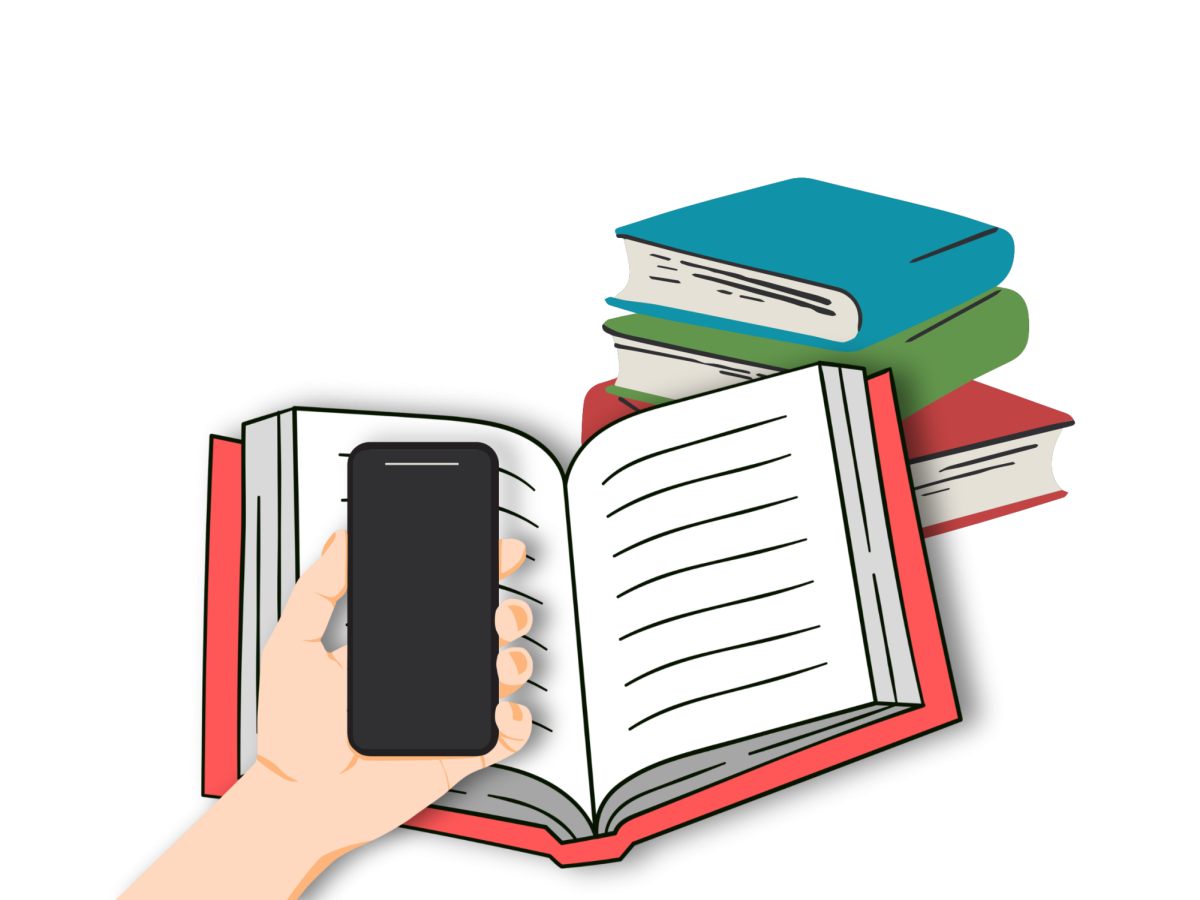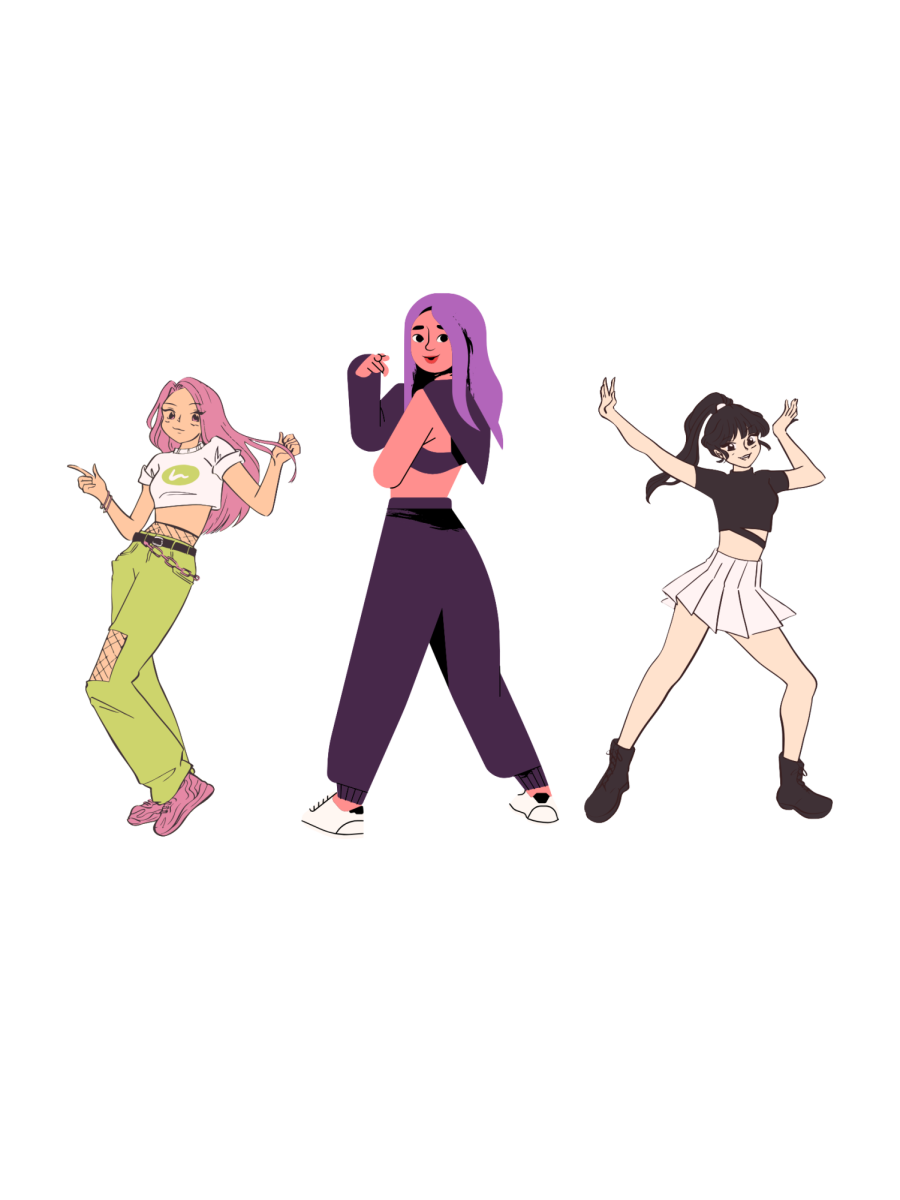The smell of fresh parchment fills the air as a student races into the distant lands of Narnia. As their hand flips the pages, eyes racing toward the next word, they gain insight into worlds only available in their imagination.
“Humanities, at large, is understanding where we all come from and sort of answering the eternal why,” English teacher Steven Garnett said. “I think that [reading] should also be pleasurable, and I think that pleasure reading is a gift because it gets the imagination going in ways that looking at something that’s being [taught] cannot.”
While many know its benefit, pleasure reading has plummeted following the pandemic and the technological revolution. On our campus, the number of books that were checked out from the Rich Library decreased by 45% from 2018-2019 to 2023-2024. This issue is staggering and campus-wide, especially in the upper school.
“Honestly, none of my friends read, so it does seem like there’s a huge decline,” sophomore Thomas Hoskins said. “The only time people actually read is when you’re assigned to read. Other than that, there’s just no reading.”
As the demands on kids’ time changes as they get older, there becomes less opportunities to sit and read.
“At a certain point, you have kids in the palm of your hands because there’s nothing else they’re going to do with their day but play,” Garnett said. “At some point, the kids are going to get older and want to socialize, work, be able to take up extracurriculars [and] have a boy or girlfriend that’s more interesting than a Percy Jackson series.”
Outside of a growing social life, the rise of short-form content and constant notifications have amplified distractions that decrease the likelihood of a student picking up a book.
“Social media is another aspect that decreases someone’s want to read,” Hoskins said. “It’s just because people are on it all the time and it’s a lot more stimulating than reading a book.”
While many credit the national decline in pleasure reading to a lower attention span and technology, Trinity Prep’s Director of Library and Information Services Lee De Groft attributes educational policies like No Child Left Behind, as a structural problem that has compounded the issue.
“Before, it was deemed important for students to read whatever they wanted for pleasure or class read,” De Groft said. “That quickly went out the window when you were required to instead work on worksheets that guided your standardized testing, so I think that is just as much to blame as social media.”
These policies reinforced the idea that reading is a means to an end, rather than an enjoyable activity that can build portable skills. While pleasure reading is declining now, there are numerous solutions Trinity can implement to buck the trend.
“In some way, [Trinity] would have to incentivize people by making [reading] more fun,” Hoskins said. “The school would have to maybe make it a group opportunity to talk about what you’re reading about and work on some project that has to do with it.”
Starting next quarter, De Groft hopes to implement community-based initiatives such as “Meet Me in the Middle,” which would bring the lower school together to read the same books during middle block. She wants to expand this to the upper school later this year. Another important step, according to De Groft, is to recognize there is value in reading any material, no matter the genre.
“I would say embrace every genre and format of reading that there is,” De Groft said. “It does not have to be a Newbery Award winner. It does not have to be a New York Times bestseller. It could be a graphic novel. It could be a meal prep cookbook. It could be anything driven by your interest.”
While classics like “The Odyssey” and “The Misanthrope” are important to learn in the classroom, De Groft hopes to promote a broader understanding that any reading is good reading.
“If you’re interested in something and you’d like to pursue that during the school day by reading about it then I think that would be a great thing to support,” De Groft said.
To be a reader is not defined by glasses and 900-page books, but rather by the want to gain a deeper understanding of the world, engage your imagination and get better at communicating with others.
“Every time you read, you’re expanding your vocabulary, you’re finding out new views of the world, but most importantly you’re building your relationship with words,” De Groft said. “Reading to me is understanding the nature of words, how they work in the world, and how you can communicate better.”















